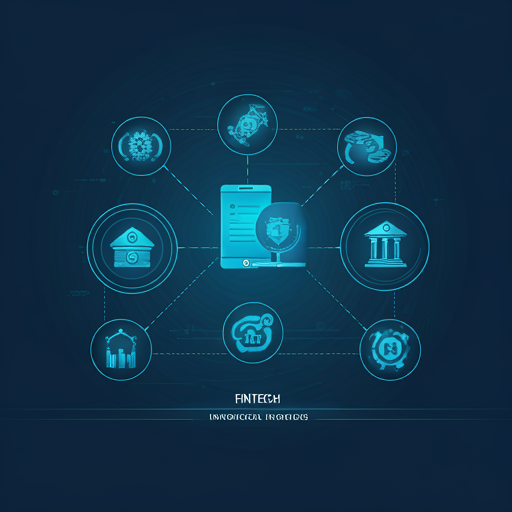Introduction to Fintech Innovations
Defining Fintech and Its Importance
Fintech, or financial technology, encompasses innovative solutions that enhance and automate financial services. It plays a crucial role in improving efficiency and accessibility in banking. This sector leverages advanced technologies like blockchain and artificial intelligence to streamline operations. These innovations can reduce costs and enhance customer experiences. It’s fascinating how technology reshapes finance. Fintech is not just a trend; it’s a revolution. Embrace the change.
Overview of Current Trends in Fintech
Current trends in fintech include the rise of digital banking platforms and the integration of artificial intelligence in financial services. These advancements facilitate real-time data analysis and personalized customer experiences. Moreover, the adoption of blockchain technology enhances security and transparency in transactions. This is a game changer. Such innovations are reshaping traditional banking models. Change is inevitable.
The Role of Blockchain Technology
Understanding Blockchain Basics
Blockchain technology serves as a decentralized ledger that records transactions across multiple computers. This ensures that the data is secure and immutable. Additionally, it enhances transparency by allowing all participants to access the same information. Trust is crucial in finance. The consensus mechanism further validates transactions, reducing the risk of fraud. This is essential for security.
Blockchain’s Impact on Financial Transactions
Blockchain signjficantly enhances the efficiency of financial transactions by eliminating intermediaries. This reduces costs and speeds up processing times. Moreover, it provides a secure environment for conducting transactions. Security is paramount in finance. The transparency of blockchain fosters trust among participants. Trust is essential for collaboration.
Cryptocurrencies and Their Influence
How Cryptocurrencies Are Reshaping Banking
Cryptocurrencies are fundamentally altering the banking landscape by introducing decentralized financial systems. He observes that these systems reduce reliance on traditional banks. Additionally, they enable peer-to-peer transactions, enhancing accessibility for users. This is a significant shift. Furthermore, cryptocurrencies offer innovative solutions for cross-border payments. Efficiency is key in finance.
The Rise of Decentralized Finance (DeFi)
The rise of decentralized finance (DeFi) is transforming traditional financial systems. Key components include:
He notes that DeFi enhances financial inclusivity. This is crucial for many. Additionally, it reduces transaction costs significantly. Efficiency is vital in finance.
Artificial Intelligence in Banking
AI Applications in Financial Services
AI applications in financial services enhance operational efficiency and decision-making. For instance, machine learning algorithms analyze vast datasets to identify trends and risks. This leads to more informed investment strategies. Data-driven insights are invaluable. Additionally, AI-powered chatbots improve customer service by providing instant support. Quick responses matter in finance. Fraud detection systems also utilize AI to monitor transactions in real-time. Security is paramount for trust.
Enhancing Customer Experience with AI
AI enhances customer experience in banking by personalizing services and streamlining interactions. He notes that predictive analytics can anticipate customer needs effectively. This leads to tailored financial solutions. Customization is key in finance. Additionally, AI-driven chatbots provide ⁄7 support, addressing inquiries promptly. Quick assistance is essential. Overall, these innovations foster stronger customer relationships. Trust is vital for loyalty.
Regulatory Challenges and Opportunities
Navigating the Regulatory Landscape
Navigating the regulatory landscape presents both challenges and opportunities for financial institutions. Compliance with evolving regulations can be complex and costly. This requires significant resources and expertise. Understanding regulations is crucial. However, proactive adaptation can lead to competitive advantages. He believes that embracing regulatory changes fosters innovation. Additionally, collaboration with regulators can enhance trust and transparency. Trust is essential in finance.
Future Regulations and Their Implications
Future regulations will likely focus on enhancing consumer protection and promoting financial stability. He anticipates that compliance requirements will become more stringent. This may increase operational costs for institutions. Cost management is essential. Additionally, regulations may encourage innovation in financial products. Innovation drives growth in finance. Institutions must adapt quickly to remain competitive. Agility is crucial for success.
Digital Payment Solutions
Emergence of Contactless Payments
The emergence of contactless payments has revolutionized transaction methods in retail. This technology allows consumers to make quick payments using NFC-enabled devices. Speed is essential in today’s market. Additionally, contactless payments enhance security through tokenization. Security is a top priority. As adoption increases, businesses must upgrade their payment systems. Upgrading is necessary for competitiveness.
Mobile Wallets and Their Adoption
Mobile wallets are gaining traction as convenient digital payment solutions. Key features include:
He notes that the adoption rate is increasing rapidly. This trend reflects changing consumer preferences. Additionally, mobile wallets facilitate faster transactions. Speed enhances customer satisfaction. As technology evolves, businesses must adapt to these solutions. Adaptation is crucial for success.
The Future of Banking in a Fintech World
Predictions for the Next Decade
In the next decade, banking will increasingly integrate fintech innovations. Key trends include:
He predicts that traditional banks will evolve to remain competitive. Adaptation is essential for survival. Additionally, regulatory frameworks will likely become more robust. Compliance will be a significant focus. As technology advances, customer expectations will rise. Meeting expectations is crucial for success.
How Traditional Banks Can Adapt
Traditional banks can adapt by embracing digital transformation and enhancing their technological infrastructure. He emphasizes the importance of investing in fintech partnerships. This collaboration can drive innovation and improve service delivery. Innovation is essential for growth. Additionally, banks should focus on customer-centric strategies to meet evolving expectations. Understanding customer needs is crucial. Furthermore, implementing robust cybersecurity measures will protect sensitive data. Security is a top priority in finance.
